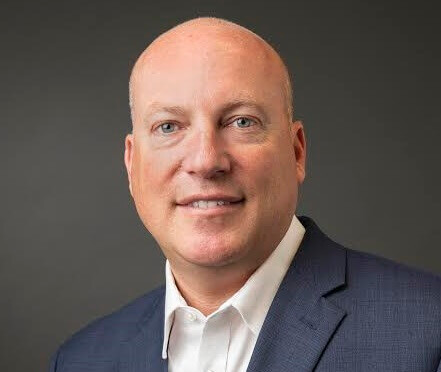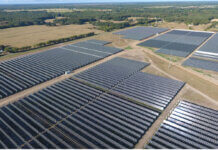With a background spanning the military and the technology industry, Scott Wiater quickly found his niche when he entered the solar space 10 years ago.
In an industry that has certainly seen its share of highs and lows over the past decade, Wiater, president and CEO of Maryland-based Standard Solar, helped lead the company’s growth from a small residential installer to a full-service owner, operator, EPC contractor and financier of solar projects. Wiater recently spoke with Solar Industry to reflect on his 10 years in the biz.
Q. What is your full career background, and what made you decide to enter the solar industry?
Wiater: I started my career as an aviation officer with the U.S. Army, where I honed my skills as a leader. In such a position, you have to be a problem solver, a risk taker and a servant of a cause larger than yourself. I took those skills into business as an executive at several tech firms, including Motorola. In 2008, however, I realized that I was still searching for a position that would allow me to use those skills I learned in the Army to serve a cause larger than myself. That’s what Standard Solar offered me, and that’s why I decided to join the company.
The solar industry was in its infancy in 2008. When I interviewed for the job, something just clicked – and the company hired me to further transform Standard Solar into a profitable business that created value for its shareholders at the same time. In the process of achieving those goals, I would also find fulfillment by giving people energy security through the proliferation of solar electricity.
In retrospect, this was the job I’d trained for all my life. And now my career is defined not by my time in the Army, but the amount of time I’ve spent in the solar industry. This is my dream job, and I couldn’t imagine being anywhere else. It’s where I’m meant to be.
Q. What do you feel are some of the biggest milestones in the U.S. solar industry over the past decade?
Wiater: First of all, the biggest milestone for the industry was the introduction of the investment tax credit (ITC). Getting an investment package that allowed solar to compete with other forms of energy that are also subsidized was huge. It put us on a level playing field with other forms of energy and let us really get started as an industry.
Secondly, it was a major milestone when we became the lowest-cost form of new generation of energy. When solar started beating coal, oil and other fossil fuels on price, that’s when solar really began taking off. No one could make the argument any longer that solar was too expensive to install. It’s also when utilities started closing coal plants in earnest. They just weren’t cost-competitive anymore.
And between that, I’d say when the utilities started noticing that the solar industry wasn’t just a niche market anymore. When the utilities realized that we were going mainstream, that was a huge milestone for the industry, too.
Q. How has Standard Solar grown over the past few years, and what factors have led to this growth?
Wiater: We’ve grown conservatively throughout the years because we had to make sure we were financially strong enough to weather the ups and downs that the industry experienced. Once we were acquired by Énergir, which provided a big balance sheet behind us, it allowed us to be more aggressive in our growth.
It also allowed us to change our business model slightly because we can now own the assets that we are building long term, which has always been our goal.
Q. What first attracted you to the Maryland solar market, and what made you decide to expand beyond Maryland?
Wiater: We started in the Maryland market because that’s where the company was founded, and we wanted to grow the company by helping people in our immediate area. Even though there wasn’t much state support at the time for the solar industry, we felt we could make a go of it – and we did.
As for expanding beyond the state, you have to be diversified geographically if you want to survive, because the state-level incentives vary so widely. There’s a constant ebb and flow of state-level policy, so you have to be able to weather those changes when they come. And to meet the growth goals that we’d set for ourselves, we were always going to have to expand well beyond Maryland.
Q. What do you feel are the biggest hurdles facing the industry right now?
Wiater: Legislative uncertainty is still the greatest concern – at the federal level, at the state level and at the public utilities’ commission level. Policy, whether it’s interconnection or financial incentives, presents challenges.
Q. How have the tariffs affected your business decisions?
Wiater: We haven’t let it affect us. Good business decisions are still good business decisions, and since we operate in the U.S., the tariffs affect all of our competitors equally. So our job is to make sound business decisions and let everything else play out around us.
The only way the tariffs have changed the way we operate our business is our supply-chain management. We’re less likely to enter into long-term relationships with vendors because we don’t know what the tariffs are going to be or how long they’re going to be in place. We could be more strategic in our supply-chain management if the tariffs weren’t in place.
Q. What are your U.S. plans in the short and long term?
Wiater: We continue to expand both in size and geographically wherever it makes sense. If a project makes sense, we have the appetite and financing available to build and own it.
Q. Would you support a long-term or permanent extension of the ITC and/or an energy storage ITC?
Wiater: The easy part of that question is yes, I would absolutely support an expansion of the ITC to cover energy storage. As for the other part of your question, I would say that I’m supportive of solar playing on an even playing field with other energy sources. And to the extent that other energy sources are subsidized, I don’t think it makes any sense for solar to disarm unilaterally. But truly, a level playing field is all we seek.




